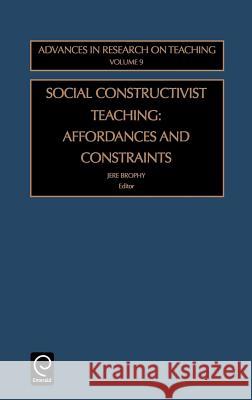Social Constructivist Teaching: Affordances and Constraints » książka
Social Constructivist Teaching: Affordances and Constraints
ISBN-13: 9780762308736 / Angielski / Twarda / 2002 / 384 str.
This volume is a sympathetic but analytical and critical view of social constructivist teaching, considering both its affordances (what it offers to students when implemented well in situations for which it is well suited) and its constraints (enabling conditions; situations in which these conditions are absent and other forms of teaching are more appropriate). in the areas of teaching in which their scholarly work has concentrated, to describe the forms that such teaching takes and the rationale for using them, assess their strengths/areas of applicability and their weaknesses/areas of irrelevance or limited applicability, and talk about how the approaches would need to be adjusted from their usual forms in order to match the affordances and limitations of certain students, instructional situations, etc. The authors focus on theory and research relating to social constructivist teaching, not merely social constructivist ideas about epistemology or learning. subjects and include attention to small-group as well as whole-class settings and to selection of learning activities as well as scaffolding of discourse. Most currently available scholarly writing on social constructivist teaching is limited to consideration of propositional knowledge (defining it and identifying its key characteristics) and procedural knowledge (describing its implementation in detail). This volume also includes much-needed conditional knowledge (specification of when and why it would or would not be used).











